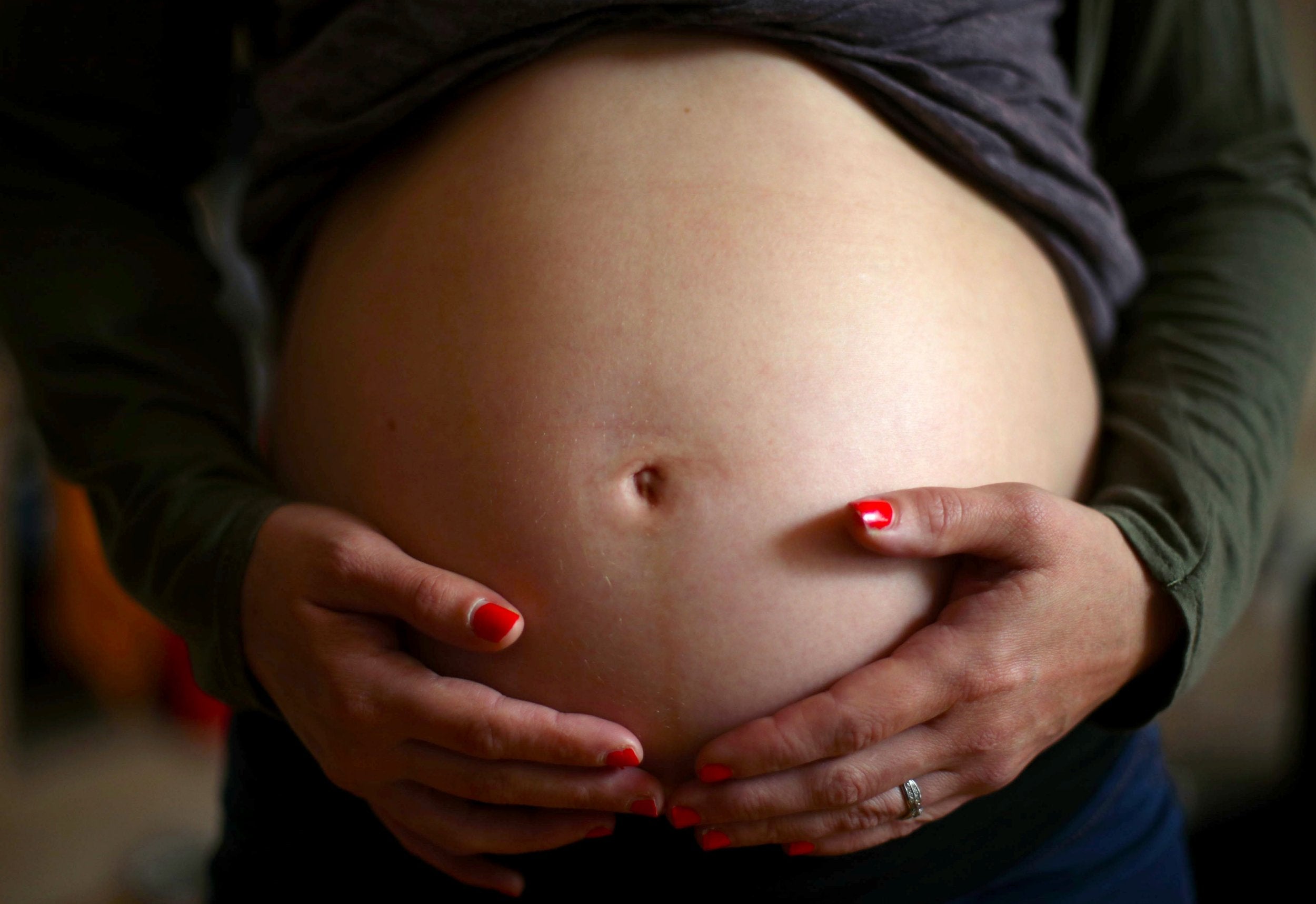Pregnant women and new mothers face redundancy during coronavirus crisis, warns Equality and Human Rights Commission
Exclusive: ‘Every day we are hearing from women placed on sick pay, annual leave, or going unpaid simply because they are pregnant,’ says campaigner

Pregnant women and new mothers face being made redundant during the coronavirus crisis due to being unfairly discriminated against, the Equality and Human Rights Commission has warned.
The equality body notes employers will be forced to make difficult choices about who is laid off during the Covid-19 emergency as it predicts this could have “serious implications” for women who are pregnant or have newborn babies.
Its warning comes as campaigners report women are being put on sick pay, annual leave, or not receiving any money whatsoever during lockdown because they are pregnant.
The Equality and Human Rights Commission (EHRC) called for employment safeguards for expectant mothers and new mothers to be “urgently strengthened” more broadly, but also specifically in the government’s return to work guidance, which is being supplied to employers.
It demanded an increase of three months in the time limit for putting forward employment tribunal claims for discrimination and harassment – arguing it needs to be lengthened to half a year.
Rebecca Hilsenrath, chief executive of the EHRC, said: “Pregnant women and new mothers already face many challenges at work.
“The pressures of the coronavirus crisis add to the risk of discrimination. The government has already outlined its intention to increase protection from redundancy for pregnant women and returning mothers by an additional six months – we welcome this commitment and ask that this essential protection is now implemented.
“As the current situation makes it much harder to make discrimination claims, the time limit should be increased as part of emergency legislation. We know employers have to make tough decisions in these circumstances, but they must be fair to those on maternity leave or who have recently given birth. If we don’t act now the hard-earned rights of women at work will be set back.”
The EHRC urged the government to bolster the job retention scheme and incorporate the right for disadvantaged groups, such as disabled people, those with long-term health conditions or caring duties, to ask to be furloughed.
This comes after the government’s Covid-19 wage subsidy scheme for employees was extended until the end of October by the chancellor earlier in the week. Rishi Sunak announced the furlough scheme, which sees the government foot the bill for 80 per cent of furloughed employees’ wages with a cap of £2,500 a month, would remain unchanged until the end of July.
Joeli Brearley, chief executive and founder of campaign group Pregnant Then Screwed, said they shared the EHRC’s concerns.
She added: “Last month, our free legal advice line received five times as many calls as it normally does. We’ve opened a second helpline to cope with the demand. Every day we are hearing from women placed on sick pay, annual leave, or going unpaid simply because they are pregnant. We’ve also heard of workplaces that are only furloughing pregnant women and mothers. This crisis has seen a blatant erosion of the employment rights of pregnant women and mothers.
“We are preparing for a surge in employment tribunal claims when people return to work. However, it’s completely unreasonable to expect employees to bring a claim within the three-month time limit, given the circumstances. Many of these women are either coming to terms with new motherhood, trying to balance work with no childcare or simply trying to survive financially.
“They don’t have the capacity to then take on legal action too. We have long campaigned for this time limit to be extended to six months, and the Law Commission has recently recommended this too. Delaying the implementation of this further will give unscrupulous employers a free pass.”
The NHS states pregnant women are deemed to be a vulnerable group and need to be especially strict with social distancing.
Rosalind Bragg, director of Maternity Action, a national pregnancy charity, noted the government committed to making redundancy protections for new mothers stronger back in 2017, but women are still waiting for action to be taken.
“It is not acceptable that pregnant women will be left without the promised legal protections as businesses downsize during the pandemic,” she added. “Discrimination against pregnant women and new mothers was widespread before the pandemic, and we are very concerned that the situation will worsen as economic conditions deteriorate.”
Ms Bragg continued: “On our advice lines, we are hearing from women at risk of redundancy who would benefit from the promised legal protections. There is nothing to stop the government taking swift action now to make the promised changes to the law.
“We have asked the government for guidance on health and safety for pregnant women at work, and are disappointed that this is still not forthcoming. This has left many pregnant workers facing a choice between unsafe working conditions or taking badly paid sick leave. Employers are unaware of their legal obligations. Pregnant women who cannot be offered safe working conditions should be suspended on full pay or offered furlough.”
A London School of Economics study, which came out earlier in the week, shows women are more likely than men to lose their jobs in the upcoming recession because a greater proportion work in sectors that are predicted to be hardest hit.
Women are overrepresented in hospitality, leisure, tourism and the arts – industries where thousands of workers have been furloughed or laid off due to the Covid-19 pandemic.
The government equalities office has been contacted for comment.
Join our commenting forum
Join thought-provoking conversations, follow other Independent readers and see their replies
Comments
Bookmark popover
Removed from bookmarks